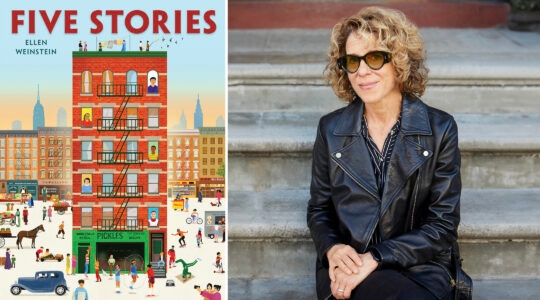
Security checks no longer just for airports in Beijing
Olympic security is no easy task. It’s not just about the sports venues – attention must be paid to the entire city’s infrastructure, hot spots and transportation systems.
One of the transitions that I think Beijing residents have done with few complaints is adjust to bag x-ray security checks at the entrance of every subway station. This measure was added at the end of June as part of a three-month campaign to secure the city for the Olympics and Paralympics, yet even now, there are still a few stray stations where a guard manually looks in your bag for lack of a scanning machine.

Want to ride the subway? Let’s see what you’re packing.
This is the kind of treatment one might be used to in Israel, but not in freewheeling China.
When I ate at Dini’s kosher restaurant two nights before the Opening Ceremony, I was greeted by a 20-year-old Chinese guard in a reflective security vest with the Hebrew word “Bitachon” (security) on the front and a scanner wand in hand. My Israeli security check flashbacks returned – although I never spoke in Mandarin to the guys who checked my bag at the entrance to Jerusalem bars.

Guard outside Beijing’s kosher restaurant
I don’t think China has quite reached the “chefetz chashud,” or suspicious object, level of alertness that one might find in Israel (and lately in the United States as well), where seeing an abandoned bag or anything out of the ordinary would merit a call to the authorities.
Maybe they are more vigilant out in Xinjiang Uygur Autonomous Region, where Muslim separatist sentiment is strong and there have been both thwarted and actualized attacks in recent months. This story shows how the Chinese decided to rely on a low-tech approach to sounding the alarm with a whistle.
All jokes about whistles aside, many Chinese people I have talked to in Beijing have insisted how Chinese terrorists, usually referring to Xinjiang or sometimes Tibetans, are “really fierce.” I wonder whether this is based on fear-mongering by the domestic media or not. On the one hand, 16 officers were killed and another 16 were injured in the western capital Kashgar this week when two men rammed a dump truck and hurled explosives at a group of jogging policemen. But of course, this kind of incident is used to crack down on individual freedoms and the rights of the press, who are not being afforded all the openness that was promised for the duration of the Olympics as evidenced by the recent beating of two Japanese journalists suffered while covering the most recent Xinjiang incident
The Israeli Embassy will have an event on Monday, Aug. 18 to commemorate the most fatal breach of Olympic security, the 1972 Munich Games where 11 Israeli athletes were killed after a terrorist infiltration of their Olympic Village accommodations. This tragedy was commemorated even earlier this year in Beijing, at the Chabad Purim party, which was Olympics-themed but included several placards and handouts about the athletes who died in ’72.
With such a sobering legacy of Israeli Olympic participation, you would think that security would be more intense for the Jewish state’s athletes as compared to other delegations in the village. Yet Ephraim Zinger, the secretary-general of the Israeli Olympic Committee and chief of misson, says the Israelis are on the list of countries with the most sensitive security issues, but “we aren’t the only ones, and we aren’t at the top of the list either.”





